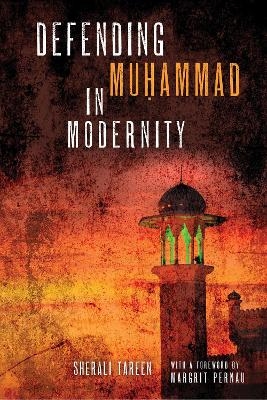
Defending Muḥammad in Modernity
University of Notre Dame Press (Verlag)
978-0-268-10670-6 (ISBN)
- Lieferbar (Termin unbekannt)
- Versandkostenfrei innerhalb Deutschlands
- Auch auf Rechnung
- Verfügbarkeit in der Filiale vor Ort prüfen
- Artikel merken
In this groundbreaking study, SherAli Tareen presents the most comprehensive and theoretically engaged work to date on what is arguably the most long-running, complex, and contentious dispute in modern Islam: the Barelvī-Deobandī polemic. The Barelvī and Deobandī groups are two normative orientations/reform movements with beginnings in colonial South Asia. Almost two hundred years separate the beginnings of this polemic from the present. Its specter, however, continues to haunt the religious sensibilities of postcolonial South Asian Muslims in profound ways, both in the region and in diaspora communities around the world.
Defending Muḥammad in Modernity challenges the commonplace tendency to view such moments of intra-Muslim contest through the prism of problematic yet powerful liberal secular binaries like legal/mystical, moderate/extremist, and reformist/traditionalist. Tareen argues that the Barelvī-Deobandī polemic was instead animated by what he calls “competing political theologies” that articulated—during a moment in Indian Muslim history marked by the loss and crisis of political sovereignty—contrasting visions of the normative relationship between divine sovereignty, prophetic charisma, and the practice of everyday life. Based on the close reading of previously unexplored print and manuscript sources in Arabic, Persian, and Urdu spanning the late eighteenth and the entirety of the nineteenth century, this book intervenes in and integrates the often-disparate fields of religious studies, Islamic studies, South Asian studies, critical secularism studies, and political theology.
SherAli Tareen is associate professor of religious studies at Franklin and Marshall College. He is co-editor of Imagining the Public in Modern South Asia. Margrit Pernau is a senior researcher at the Max Planck Institute for Human Development and author of Ashraf Into Middle Classes: Muslims in Nineteenth-Century Delhi.
Introduction
Part 1. Competing Political Theologies
1.Thinking the Question of Sovereignty in Early Colonial India
2. The Perils and Promise of Moral Reform
3. Reenergizing Sovereignty
4.Salvational Politics
5. Intercessory Wars
Part 2. Competing Normativities
6. Reforming Religion in the Shadow of Colonial Power.
7. Law, Sovereignty, and the Boundaries of Normative Practice
8. Forbidding Piety to Restore Sovereignty: The Mawlid and its Discontents
9. Retaining Goodness: Reform as the Preservation of Original Forms
10. Knowing the Unknown: Contesting the Sovereign Gift of Knowledge
Part 3
11. Internal Disagreements
Epilogue
Postscript: Listening to the Internal ‘other’
| Erscheinungsdatum | 31.12.2019 |
|---|---|
| Vorwort | Margrit Pernau |
| Zusatzinfo | 2 Maps; 4 Halftones, black and white |
| Verlagsort | Notre Dame IN |
| Sprache | englisch |
| Maße | 152 x 229 mm |
| Gewicht | 624 g |
| Themenwelt | Geschichte ► Teilgebiete der Geschichte ► Religionsgeschichte |
| Geschichte ► Teilgebiete der Geschichte ► Wirtschaftsgeschichte | |
| Geisteswissenschaften ► Religion / Theologie ► Islam | |
| Sozialwissenschaften ► Politik / Verwaltung ► Vergleichende Politikwissenschaften | |
| ISBN-10 | 0-268-10670-3 / 0268106703 |
| ISBN-13 | 978-0-268-10670-6 / 9780268106706 |
| Zustand | Neuware |
| Informationen gemäß Produktsicherheitsverordnung (GPSR) | |
| Haben Sie eine Frage zum Produkt? |
aus dem Bereich


